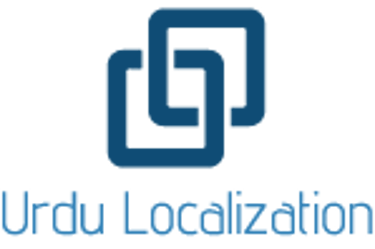
Urdu Localization for Government Portals and Public Services: Bridging Citizens and Institutions
2 min read

Digital government platforms are becoming the primary way citizens interact with public services. From paying taxes to applying for permits, renewing licenses, or accessing social welfare programs, online portals save time and increase efficiency. But for Urdu-speaking citizens, language barriers often prevent them from using these services effectively. This is where professional Urdu translation and localization play a crucial role in ensuring inclusivity and trust.
Why Accessibility Matters in Public Services
Governments aim to serve every citizen, regardless of language background. If a citizen cannot understand how to navigate a government portal or interpret official documents, they risk missing deadlines, misfiling applications, or failing to access benefits. Urdu localization services ensure that government platforms are user-friendly for millions of native speakers, reducing frustration and empowering participation in civic life.
Accuracy in Legal and Administrative Language
Government documents often contain highly formal, legal, and administrative terminology. Direct translation is not enough, as small errors can lead to misunderstandings with serious consequences. Professional Urdu translators ensure that terms such as legal obligations, eligibility criteria, or compliance instructions are adapted with precision. Urdu proofreading and editing services further safeguard accuracy, ensuring official communications maintain credibility.
Building Trust Through Cultural Sensitivity
For many citizens, interacting with government institutions can already feel intimidating. When portals, notifications, and forms are available in their native Urdu, the process becomes less stressful and more approachable. Cultural sensitivity in tone and phrasing makes citizens feel that the system is designed for them, rather than against them. This builds trust in government services and strengthens civic engagement.
Beyond Translation: Technical and Visual Adaptation
Urdu’s right-to-left script requires technical adaptation in digital design. Government portals must align text properly, structure navigation for RTL use, and ensure that forms, dropdowns, and payment fields display correctly. Without this attention, even accurate translations can appear broken or confusing. Professional Urdu localization ensures a seamless digital experience that matches the functionality of the original design.
The Importance of Confidentiality
Government portals handle sensitive data such as tax records, personal identification, and social security details. Confidential Urdu translation services guarantee that all information remains secure during the localization process. For public trust to be maintained, data security must be as strong as linguistic accuracy.
Expanding Access for Diaspora Communities
Millions of Urdu speakers living abroad rely on online government portals for services such as passport renewals, visa applications, and legal documentation. Offering fully localized Urdu interfaces allows governments to serve their diaspora communities with the same efficiency as local citizens.
Human Translation vs. Machine Limitations
Machine translation tools may seem like a quick fix for large volumes of government content, but their limitations become clear in sensitive contexts. Mistranslated legal instructions, awkward administrative terms, or confusing errors could lead to serious complications for citizens. Human Urdu translation vs machine approaches reveal that professional translators are essential for preserving both accuracy and clarity in official communication.
Why Consistency Matters in Public Communication
Government communication is ongoing, often spanning multiple agencies and services. Consistency in terminology across different portals and departments prevents confusion. For example, if a legal term is translated differently on two separate platforms, citizens may misinterpret rules. Professional Urdu translators ensure consistency in word choice, phrasing, and formatting across all channels.
When governments invest in Urdu localization for their digital services, they make citizenship more accessible and inclusive. By combining professional accuracy, cultural awareness, and technical adaptation, governments not only improve efficiency but also foster trust among millions of Urdu speakers. This is not just a matter of convenience — it is a commitment to equality in civic participation.
